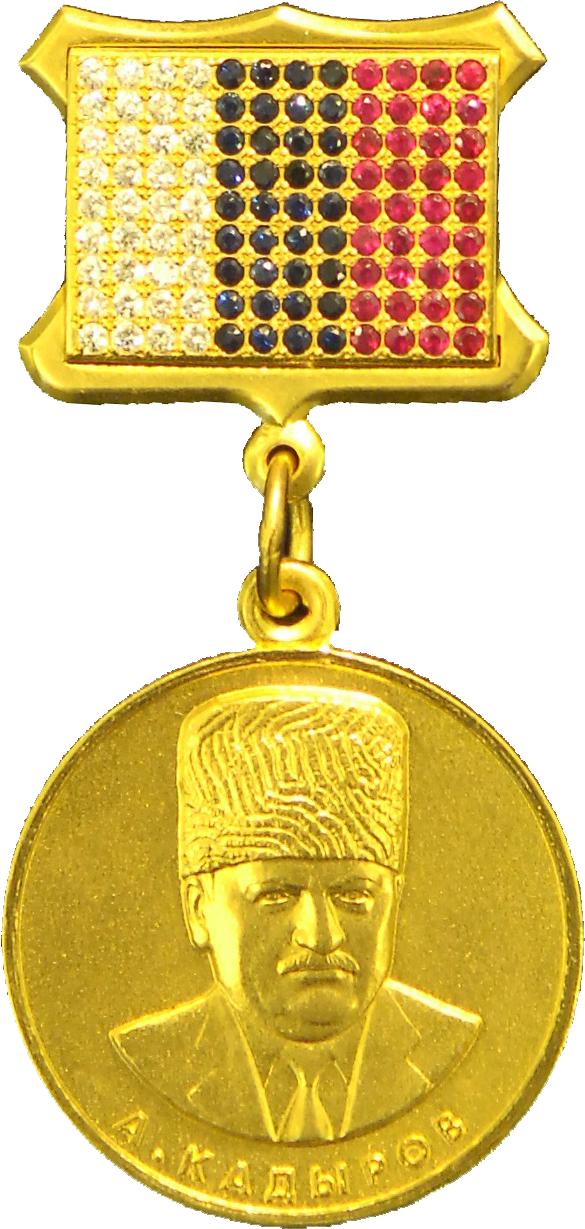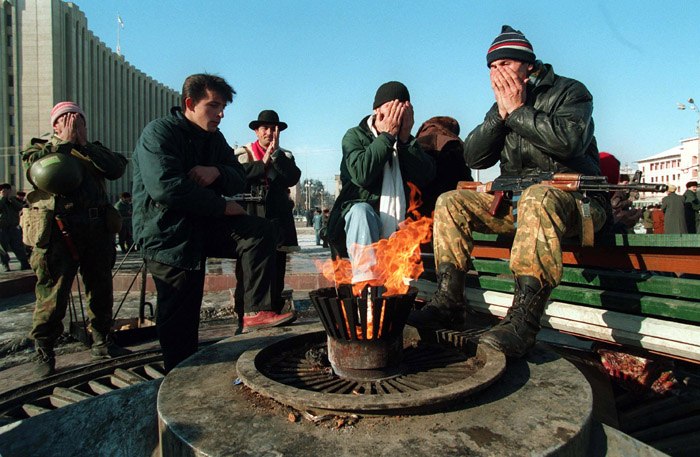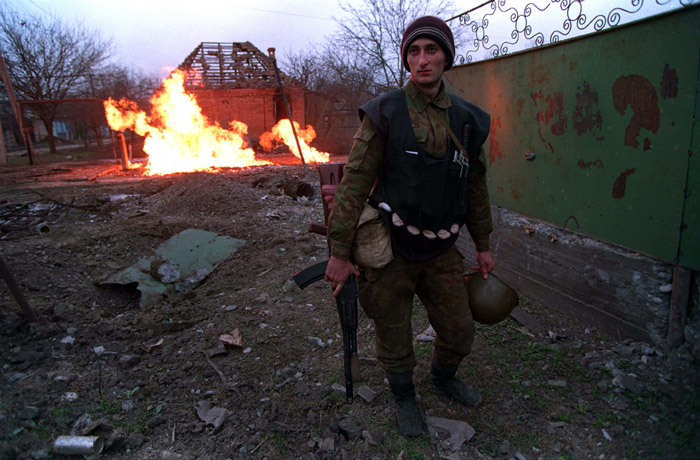|
Sultan Geliskhanov
Sultan Geliskhanov (Султан Гелисханов) is a former head of the state security service in the Chechen Republic of Ichkeria and a former field commander in the Chechen resistance against Russia. Biography Early life Sultan Geliskhanov was born in 1955 in internal exile in Kazakhstan. According to the other sources he belongs to the Yalxoroj (Ялхорой) ''teip'' (clan) and is originally from the village of Yalxoroj which is named after this teip. During the Soviet period Geliskhanov served as chief of the traffic police in Gudermes, Chechnya's second-largest city, reaching the rank of colonel. Chechen security service Following the dissolution of the Soviet Union and Chechnya's declaration of independence, after Geliskhanov lost in elections to the post of mayor of Gudermes 1992, in 1993 Dzhokhar Dudayev made him Chechen minister of internal affairs and then director of the State Security Department DGB (ДГБ) later the same year. [...More Info...] [...Related Items...] OR: [Wikipedia] [Google] [Baidu] |
Chechen Republic Of Ichkeria
The Chechen Republic of Ichkeria (; ce, Нохчийн Республик Ичкери, Nóxçiyn Respublik Içkeri; russian: Чеченская Республика Ичкерия; abbreviated as "ChRI" or "CRI") was a ''de facto'' state that controlled most of the former Checheno-Ingush ASSR. On 30 November 1991, a referendum was held in Ingushetia in which the results dictated its separation from the Chechen Republic of Ichkeria, joining the Russian Federation instead as a constituent republic. The First Chechen War of 1994–96 resulted in the victory of the separatist forces. After achieving de facto independence from Russia in 1996, gangs arose over the country which the government put a large effort to crack down upon. In November 1997 Chechnya was proclaimed an Islamic republic. A Second Chechen War began in August 1999 and officially ended in April 2009 after several years of insurgency. In October 2022, Ukraine's parliament voted to recognize the Chechen Republic ... [...More Info...] [...Related Items...] OR: [Wikipedia] [Google] [Baidu] |
Nikolay Suleimanov
Nikolay Suleimanov (russian: Николай Сулейманов; born and reportedly killed December, 1994) nicknamed "Khoza" and "Ruslan", was one of the leaders of the Chechen mafia in Russia. He is also the boss of the Suleimanov clan. Life Suleimanov came to Moscow in the early 1980s and helped Khozh-Ahmed Noukhaev and Movladi Atlangeriyev to set up the Chechen gangs there. By 1986, his group controlled Moscow's Southern River Port, the largest car market in the capital, and specialized in racketeering the "New Russian" class. Following a turf war in 1988–89, the Chechen alliance, nominally controlled by Musa the Older, managed to force some of the top rival criminal organizations completely out of the city and assume the dominant position in Moscow.Phil Williams, ''Russian Organized Crime: The New Threat?'' In 1990, he was sentenced to four years in prison, but was released two years later. In 1993, he went with his men to Chechnya, where he was joined by the charis ... [...More Info...] [...Related Items...] OR: [Wikipedia] [Google] [Baidu] |
Human Rights Watch
Human Rights Watch (HRW) is an international non-governmental organization, headquartered in New York City, that conducts research and advocacy on human rights. The group pressures governments, policy makers, companies, and individual human rights abusers to denounce abuse and respect human rights, and the group often works on behalf of refugees, children, migrants, and political prisoners. Human Rights Watch, in 1997, shared the Nobel Peace Prize as a founding member of the International Campaign to Ban Landmines, and it played a leading role in the 2008 treaty banning cluster munitions. The organization's annual expenses totaled $50.6 million in 2011, $69.2 million in 2014, and $75.5 million in 2017. History Human Rights Watch was co-founded by Robert L. Bernstein Jeri Laber and Aryeh Neier as a private American NGO in 1978, under the name Helsinki Watch, to monitor the then-Soviet Union's compliance with the Helsinki Accords. Helsinki Watch adopted a practice of public ... [...More Info...] [...Related Items...] OR: [Wikipedia] [Google] [Baidu] |
Ramzan Kadyrov
Ramzan Akhmadovich Kadyrov ce, КъадаргӀеран Ахьмат-кӏант Рамзан, translit= (born 5 October 1976) is a Russian politician who currently serves as the Head of the Chechen Republic. He was formerly affiliated to the Chechen Independence movement, through his father who was the separatist appointed mufti of Chechnya. He is a colonel general in the Russian military. Kadyrov is the son of former Chechen President Akhmad Kadyrov, who switched sides in the Second Chechen War by offering his service to Vladimir Putin's administration in Russia and became Chechen president in 2003. Akhmad Kadyrov was assassinated in May 2004. In February 2007, Ramzan Kadyrov replaced Alu Alkhanov as president, shortly after he had turned 30, which is the minimum age for the post. He was engaged in violent power struggles with Chechen commanders Sulim Yamadayev (d. 2009) and Said-Magomed Kakiyev for overall military authority, and with Alkhanov for political authority. Si ... [...More Info...] [...Related Items...] OR: [Wikipedia] [Google] [Baidu] |
Shamil Basayev
Shamil Salmanovich Basayev ( ce, Салман ВоӀ Шамиль ; russian: Шамиль Салманович Басаев; 14 January 1965 – 10 July 2006), also known by his kunya "Abu Idris", was a senior military commander in the Chechen independence movement and terrorist Terrorism, in its broadest sense, is the use of criminal violence to provoke a state of terror or fear, mostly with the intention to achieve political or religious aims. The term is used in this regard primarily to refer to intentional violen .... As a military commander in separatist armed forces of Chechnya, one of his most notable battles was the Battle of Grozny (August 1996), separatist recapture of Grozny in 1996, which he personally planned and commanded together with Aslan Maskhadov. Starting as a field commander in the Transcaucasus, Basayev led guerrilla campaigns against Armed forces of the Russian Federation, Russian forces for years, as well as launching mass-hostage takings of civ ... [...More Info...] [...Related Items...] OR: [Wikipedia] [Google] [Baidu] |
Zelimkhan Yandarbiyev
Zelimkhan Abdulmuslimovich Yandarbiyev ( ce, Яндарбин Абдулмуслиман-кIант Зелимхан, romanized: ''Yandarbin Abdulmusliman-khant Zelimxan''; russian: link=no, Зелимхан Абдулмуслимович Яндарбиев, also spelled Yandarbiev; 12 September 1952 – 13 February 2004) was a Chechen writer and politician, who served as acting president of the breakaway Chechen Republic of Ichkeria between 1996 and 1997. Yandarbiyev was deemed by UN a suspected associate of Al-Qaida extremist group, and is the first of Chechen leader to be named part of Al-Qaida terrorist network. In 2004, Yandarbiyev was assassinated while in exile in Qatar. Life Yandarbiyev was originally a literary scholar, poet, and children's literature writer, having studied at the Maxim Gorky Literature Institute in Moscow and co-founding a clandestine literature club named ''Prometheus'' which would eventually get banned by the Soviet authorities. He later became a ... [...More Info...] [...Related Items...] OR: [Wikipedia] [Google] [Baidu] |
The Independent
''The Independent'' is a British online newspaper. It was established in 1986 as a national morning printed paper. Nicknamed the ''Indy'', it began as a broadsheet and changed to tabloid format in 2003. The last printed edition was published on Saturday 26 March 2016, leaving only the online edition. The newspaper was controlled by Tony O'Reilly's Irish Independent News & Media from 1997 until it was sold to the Russian oligarch and former KGB Officer Alexander Lebedev in 2010. In 2017, Sultan Muhammad Abuljadayel bought a 30% stake in it. The daily edition was named National Newspaper of the Year at the 2004 British Press Awards. The website and mobile app had a combined monthly reach of 19,826,000 in 2021. History 1986 to 1990 Launched in 1986, the first issue of ''The Independent'' was published on 7 October in broadsheet format.Dennis Griffiths (ed.) ''The Encyclopedia of the British Press, 1422–1992'', London & Basingstoke: Macmillan, 1992, p. 330 It was produc ... [...More Info...] [...Related Items...] OR: [Wikipedia] [Google] [Baidu] |
Small Wars Journal
The ''Small Wars Journal'' (''SWJ'') is an online magazine focusing on intrastate conflict. Aside from its online magazine, ''SWJ'' hosts an accompanying blog and the Small Wars Council discussion board. Other site features include an online reference library, recommended reading and event listings. The magazine is published by the Small Wars Foundation, a non-profit corporation. The title refers to the 1940 United States Marine Corps '' Small Wars Manual'', which used "small wars" as a catch-all term for unconventional and guerrilla warfare, also encompassing foreign internal defense (FID), military operations other than war (MOOTW), and military operations in urban terrain (MOUT). History The ''Small Wars Journal'' is an evolution of the MOUT Homepage, ''Urban Operations Journal'', and urbanoperations.com, all formerly run by ''SWJ's'' editor-in-chief Dave Dilegge. Tribal Engagement Workshop On March 24 and 25, 2010, the Small Wars Foundation conducted a Tribal Engagement Wor ... [...More Info...] [...Related Items...] OR: [Wikipedia] [Google] [Baidu] |
Presidential Palace, Grozny
The Presidential Palace in Grozny was a building in the center of the Chechen capital Grozny. The building became a symbol of resistance for the supporters of the Chechen Republic of Ichkeria during the early stages of the conflict in Chechnya. The building was ruined by repeated artillery and air strikes. The Russians demolished it completely in 1996. History The 11-floor building was originally the headquarters of the Communist Party of the Soviet Union in the Chechen-Ingush Autonomous Soviet Socialist Republic. Eventually General Dzhokhar Dudayev, the first leader of the separatist Chechen Republic of Ichkeria, adopted it as his presidential palace and the main seat of his government (Dudayev's actual office was on the eighth floor of the building). During the period of de facto independence from Russia (November 1991-February 2000) the square outside the building was named in honour of Sheikh Mansur. Chechen War The palace was the target of abortive attacks by the Russ ... [...More Info...] [...Related Items...] OR: [Wikipedia] [Google] [Baidu] |
Sunzha River
The Sunzha ( rus, Су́нжа, p=ˈsunʐə, inh, Шолжа, Sholʒə, ce, Соьлжа, Sölƶa, p=sɥølʒə) is a river in North Ossetia, Ingushetia and Chechnya, Russia, a tributary of the Terek. It flows northeast inside the great northwest bend of the Terek River and catches most of the rivers that flow north from the mountains before they reach the Terek. It is long, and has a drainage basin of . The Sunzha rises on the Northern slope of the Caucasus Major. Its major tributaries are the Assa and Argun. With a turbidity of , it carries 12.2 million tons of alluvium per year. It is used for irrigation. Cities that lie on the Sunzha include Nazran, Karabulak, Grozny (the capital of Chechnya), and Gudermes. During the First and Second Chechen Wars, the destruction of petroleum reservoirs caused the Sunzha to become polluted with petroleum. Nomenclature The origin of the name of the river is disputed. The most probable of versions name Sunzha has come from Mo ... [...More Info...] [...Related Items...] OR: [Wikipedia] [Google] [Baidu] |
Battle Of Grozny (1994–1995)
The First Battle of Grozny was the Russian Army's invasion and subsequent conquest of the Chechen capital, Grozny, during the early months of the First Chechen War. The attack lasted from December 1994 to March 1995, which resulted in the military occupation of the city by the Russian Army and rallied most of the Chechen nation around the government of Dzhokhar Dudayev. The initial assault resulted in considerable Russian casualties and demoralization in the Russian forces. It took another two months of heavy fighting, and a change in tactics, before the Russian Army was able to capture Grozny. The battle caused enormous destruction and casualties amongst the civilian population and saw the heaviest bombing campaign in Europe since the end of World War II. Tactics The Chechen fighters had the advantage as they were motivated and familiar with the terrain. As former Soviet citizens, they spoke and were educated in Russian; many served in the Soviet Armed Forces. Many (lik ... [...More Info...] [...Related Items...] OR: [Wikipedia] [Google] [Baidu] |
First Chechen War
The First Chechen War, also known as the First Chechen Campaign,, [Armed conflict in the Chechen Republic and on bordering territories of the Russian Federation] Федеральный закон № 5-ФЗ от 12 января 1995 (в редакции от 27 ноября 2002) "О ветеранах" or the First Russian-Chechen war, was a war of independence which the Chechen Republic of Ichkeria waged against the Russia, Russian Federation from December 1994 to August 1996. The first war was preceded by the Russian Intervention in Ichkeria, in which Russia tried to covertly overthrow the Ichkerian government. After the initial campaign of 1994–1995, culminating in the devastating Battle of Grozny (1994–1995), Battle of Grozny, Russian federal forces attempted to seize control of the mountainous area of Chechnya, but they faced heavy resistance from Chechen guerrilla warfare, guerrillas and raids on the flatlands. Despite Russia's overwhelming advantages in firepower, manp ... [...More Info...] [...Related Items...] OR: [Wikipedia] [Google] [Baidu] |







